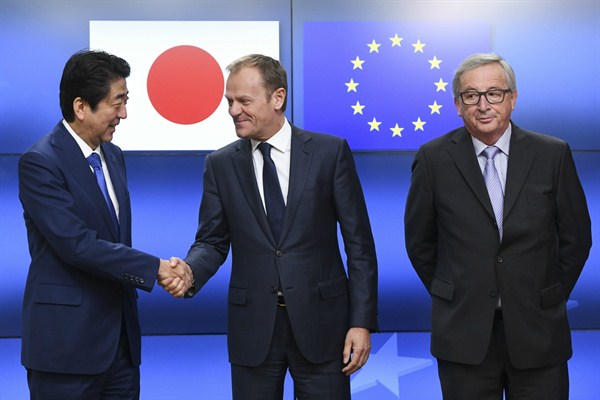Japanese Prime Minister Shinzo Abe met with European Union leaders in Brussels this week, vowing to secure a free trade deal with the bloc as soon as possible. Negotiations over the deal began in 2013 and have run into a number of roadblocks. In an email interview, J. Berkshire Miller, a Tokyo-based international affairs fellow with the Council on Foreign Relations, discusses the challenges that remain to clinching the deal as well as what the two sides stand to gain.
WPR: What is the current state of economic and political ties between Japan and EU countries, how have they been evolving in the past decade, and how will a free trade agreement affect both sides?
Miller: Japan maintains traditionally positive relations with the EU as an institution and positive bilateral relations with most of the bloc’s member states. Tokyo has strong trade and investment links with many countries in the region, including Germany, France, Italy and the Netherlands. Clearly, an FTA—which has been discussed for years—would be a positive mechanism to further economic relations.

